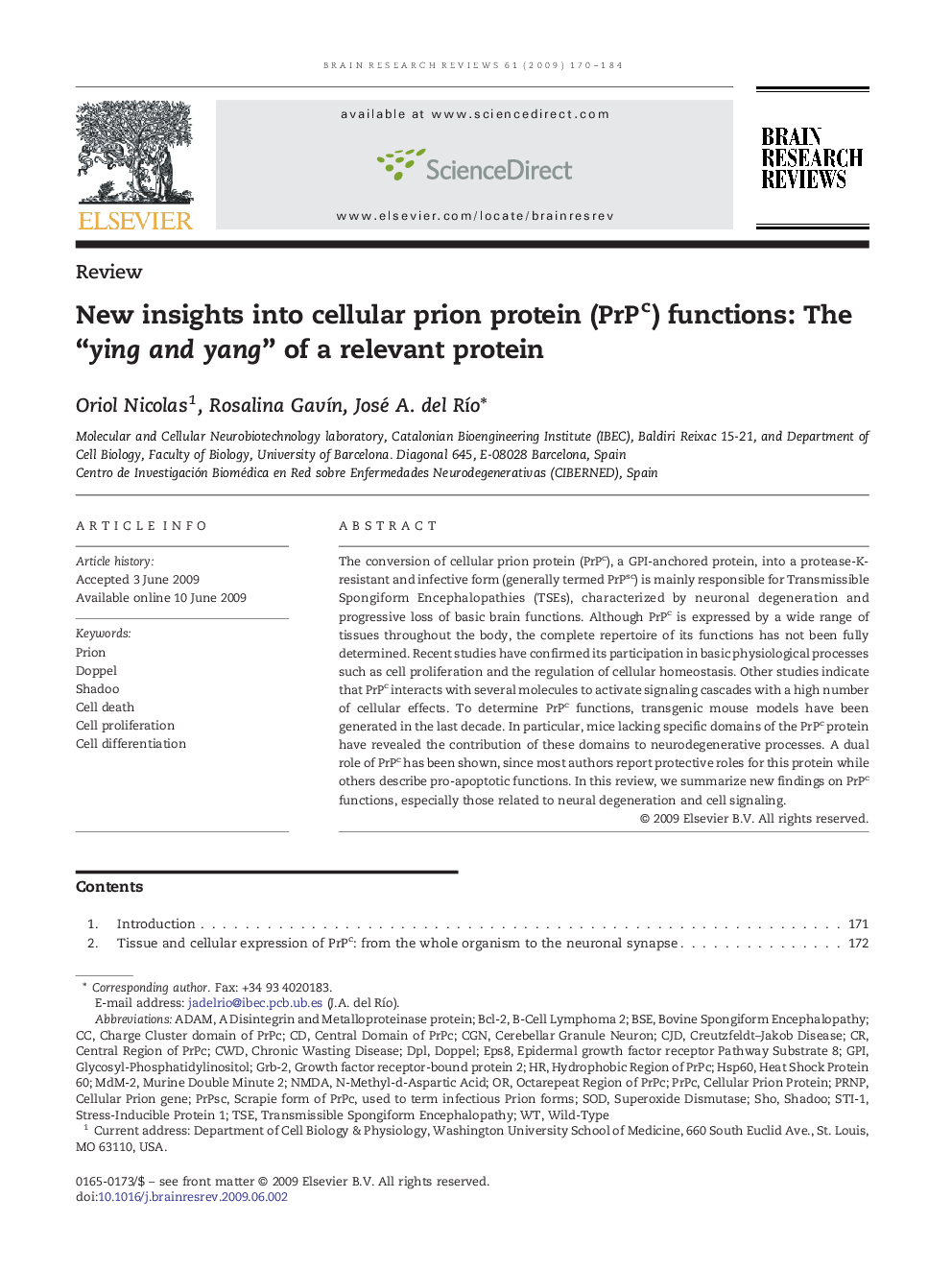| Article ID | Journal | Published Year | Pages | File Type |
|---|---|---|---|---|
| 4333737 | Brain Research Reviews | 2009 | 15 Pages |
The conversion of cellular prion protein (PrPc), a GPI-anchored protein, into a protease-K-resistant and infective form (generally termed PrPsc) is mainly responsible for Transmissible Spongiform Encephalopathies (TSEs), characterized by neuronal degeneration and progressive loss of basic brain functions. Although PrPc is expressed by a wide range of tissues throughout the body, the complete repertoire of its functions has not been fully determined. Recent studies have confirmed its participation in basic physiological processes such as cell proliferation and the regulation of cellular homeostasis. Other studies indicate that PrPc interacts with several molecules to activate signaling cascades with a high number of cellular effects. To determine PrPc functions, transgenic mouse models have been generated in the last decade. In particular, mice lacking specific domains of the PrPc protein have revealed the contribution of these domains to neurodegenerative processes. A dual role of PrPc has been shown, since most authors report protective roles for this protein while others describe pro-apoptotic functions. In this review, we summarize new findings on PrPc functions, especially those related to neural degeneration and cell signaling.
